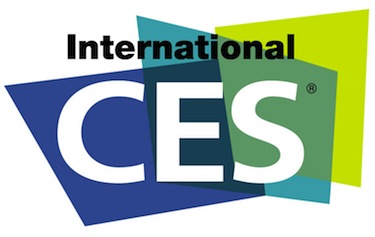 CES 2010 is in full swing this week in Las Vegas, with the biggest companies in the tech world showing off their best and newest technologies. And the product releases have certainly not disappointed.
CES 2010 is in full swing this week in Las Vegas, with the biggest companies in the tech world showing off their best and newest technologies. And the product releases have certainly not disappointed.
CES tends to be a good barometer for what’s going to be big in the year to come, and if the trend holds true, here’s a look at what we can look forward to this year:
App Stores for everything
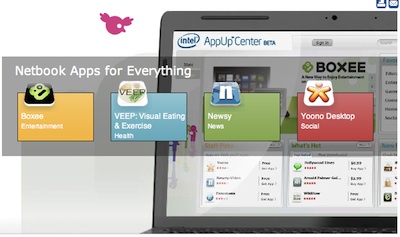
Thanks to Apple, the tech world has realized the best way to provide software on just about any platform is via an app store—a single place for users to browse, search and download applications for their device.
AI Weekly
The must-read newsletter for AI and Big Data industry written by Khari Johnson, Kyle Wiggers, and Seth Colaner.
Included with VentureBeat Insider and VentureBeat VIP memberships.
Most major smartphones already have an app store, but the model is expanding to new industries at CES. Samsung is creating an app store for your TV that will work across multiple devices, letting you do things like start a Netflix movie on your TV and then finish it on your phone. Intel announced AppUp, a customizable app store for netbooks that’ll work for various manufacturers and that Intel plans to extend to all Intel-based devices, from mobile phones to TVs. App stores appear to be the software-distribution revolution of 2010, and CES is bringing some of the players out of the woodwork.
Tablets
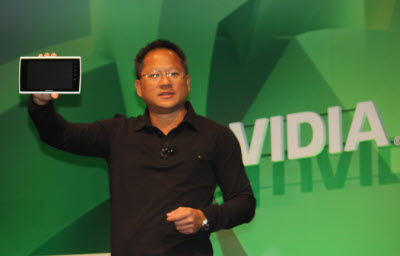
Tablets, tablets, and tablets! Everywhere you turned at CES, someone’s announcing a tablet, slate, or pad device. Nvidia called 2010 “The year of the tablet”.
Dell has its tablet concept, the 5-inch device with tons of networking possibilities. HP announced a tablet running Google’s Android, that looks an awful lot like the ones Steve Ballmer announced are coming from Microsoft running Windows 7 – which weren’t the Courier everyone expected. The most anticipated tablet announcement – Apple’s – won’t come until the end of the month, but the tablet is already hitting the critical mass of buzz.
3-D Everything
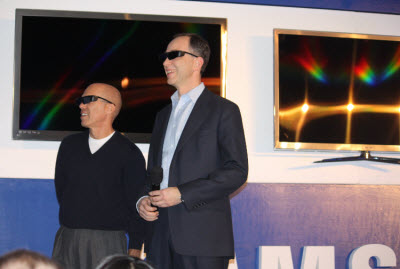
Thank goodness for blockbuster 3-D movie Avatar, which showed the world what 3-D can do when it’s not gimmicky but actually adds to the viewing experience. Companies at CES are jumping on the 3-D bandwagon, creating products that bring the 3-D experience – and the goofy glasses – into the comfort of your home. Samsung and Dreamworks are working together on 3-D products, and LG, Sharp, Panasonic and Nvidia all launched initiatives of their own at CES.
The 3-D market looks like it’s headed from nothing to dominating in record time. Intel’s CEO Paul Otellini showed how simple and universal 3-D is becoming, and DisplaySearch, a market research company, predicted massive growth in the 3-D TV market in only the next few years. Now all we need is Ray-Ban to make some sweet 3-D glasses.
Arc Keyboard
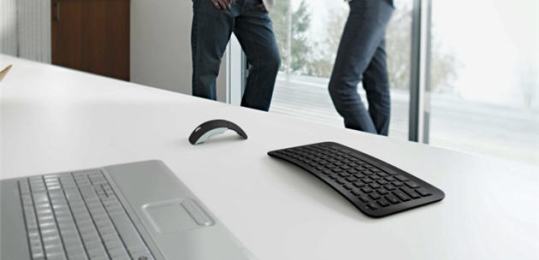
Finally, someone’s re-imagining the computer keyboard, a functional but woefully out-of-date device. Microsoft’s change is a baby step, but the Arc keyboard is designed to be easier to use, functional on both your lap and your desk thanks to the curve, and flat-out gorgeous. It may not be revolutionary, but I’m glad to see that the keyboard, and my typing-induced carpal tunnel, are finally getting some attention.
Boxee
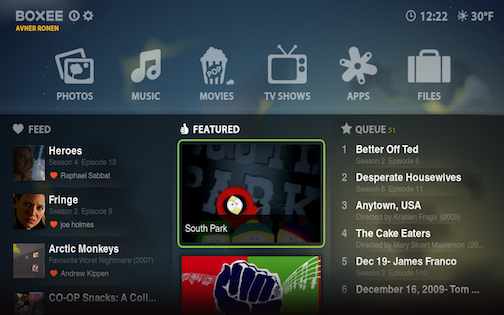
Boxee, a media center software that has been large on buzz and short on access, publicly launched its service for TVs this week. Boxee lets users connect their computers to their TV, and stream TV shows, music, movies and more. Boxee also announced a partnership with D-Link to create set-top box that will eliminate the need for a computer, allowing you to find and watch content directly from your TV, along with a companion QWERTY keyboard remote to make surfing and browsing on your TV a lot easier.
Ford Sync
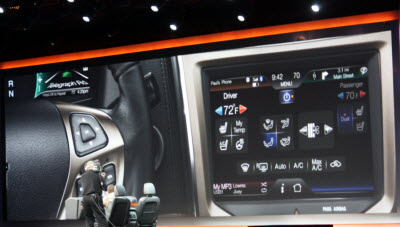
Ford’s Sync system, which lets you control everything in your Ford, Lincoln or Mercury car, from GPS directions to your iPod music, with only your voice, got a major upgrade at CES. Ford is including Wi-Fi and apps like Pandora and Twitter with Sync, meaning you’ll get a near-full Internet experience right within your car. Luckily for easily distracted folks like me, Wi-Fi only works when the car is in park. Sync is incredibly popular, and Ford believes it’s making cars both safer and more functional.
Clickfree
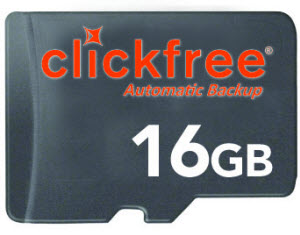
Clickfree announced at CES a Blackberry-based backup device that’s going to save road warriors from a lot of headaches. The 16GB card backs up all your files, and goes right into your Blackberry. If something goes wrong with your computer, or if you need to access your data on the road, just plug your Blackberry into a USB port, and all your files are accessible. There’s also the Clickfree C2N, a network-based device that automatically backs up every computer you have on the network, automatically and securely.
Graphic.ly’s comic reader

Comics, I think, are about to make a comeback in more than just the geek world. Graphic.ly thinks so too, and announced an application, with both an Adobe AIR version and an iPhone app, that mixes a comic book store, a gorgeous reader, and social features for comics lovers. The app was impressive enough to be demonstrated during Microsoft’s tablet announcement, and may accelerate the trend back toward the drawn, graphically-based comics of old.
Samsung’s Transparent Display
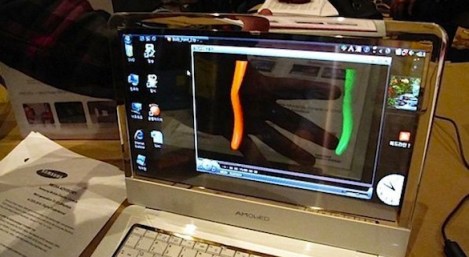
Augmented reality, putting a layer of digital information over the real world, is a topic that has gotten much discussion recently. There’s tons of promise in augmented reality, like the ability to see information and search results about the place in front of you (store, building, landmark), while you’re looking at it. At CES, Samsung is showing a transparent laptop display that lets you see both the computer you’re working on and the world behind it. It’s not a product yet, but it’s a big step for augmented reality.
There’s lots more still to come from CES, so stay tuned for more of VentureBeat’s coverage!
VentureBeat's mission is to be a digital town square for technical decision-makers to gain knowledge about transformative enterprise technology and transact. Learn More